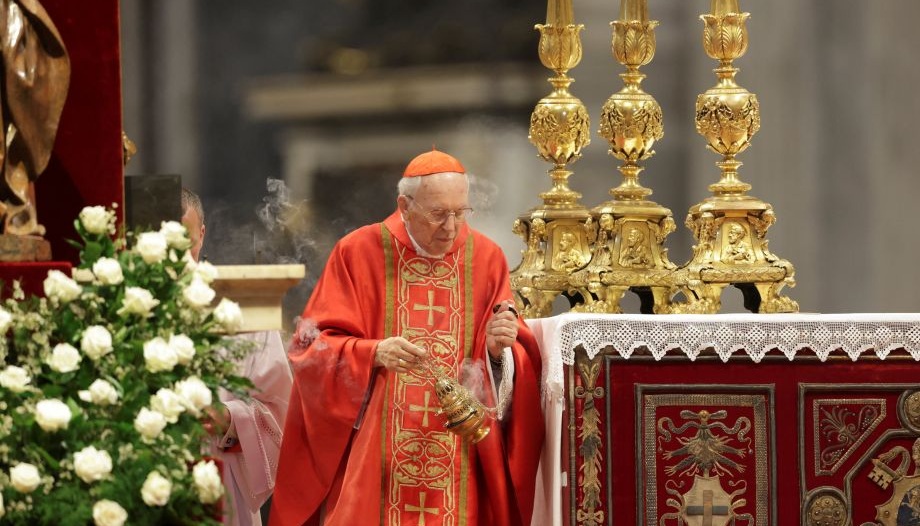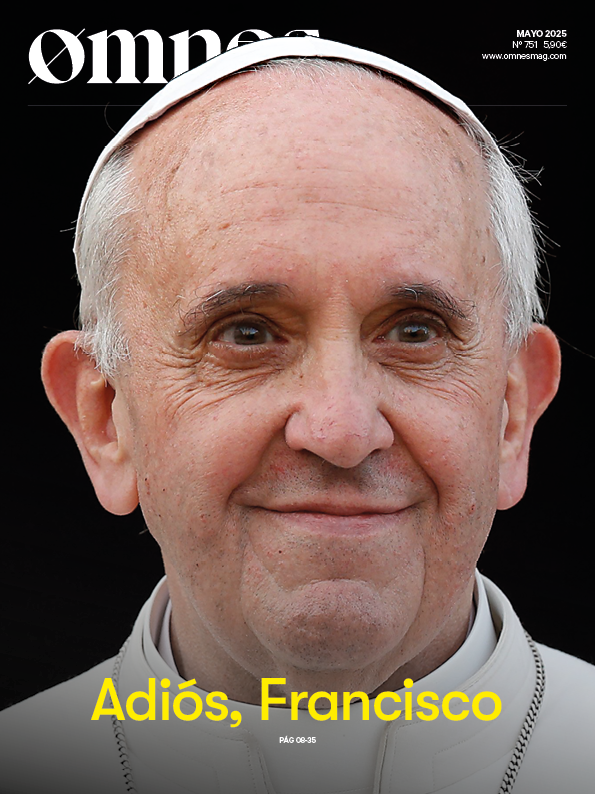The sky of Rome has dawned overcast. At the same time as the cardinals The first day of the Mass, as they entered the Vatican Basilica, a fine drizzle of rain fell. In many places this rain symbolizes the grace of heaven, an outpouring of blessings. The purpurates began the day by participating in the Mass "pro eligendo pontifice", which was held at ten o'clock in the morning in St. Peter's. The ceremony was presided over by the Dean, Giovanni Battista Re, in the presence of hundreds of faithful. The ceremony was presided over by the Dean, Giovanni Battista Re, in the presence of hundreds of faithful.
Following the death of Pope Francis on April 21, the cardinals have been meeting for the past two weeks in so-called general congregations. There has been an exchange of views and opinions on the current state of the Church. of the Church and the world, as well as moments dedicated to prayer and discernment in which the attributes of the next pontiff have been outlined. Today they arrive with their homework done to the conclave, the meeting in which they will elect the 267th Pope of the Catholic Church. Some prelates assured that they already knew who their vote would go to; others have been more reserved.
The only just and necessary attitude
The homily of this Eucharist is a notorious moment, because it summarizes the work of the previous days and points out the itinerary that will follow the voting, which begins this afternoon around 4:30 pm in the Sistine Chapel, where the cardinals will be locked in after the historic formula of the "extra omnes".
In his words, Re recalled the protagonism of the Holy Spirit, who continues to guide the Church as he did after the Ascension of Christ and in the expectation of Pentecost, as we read in the Acts of the Apostles: "they all persevered in prayer together with Mary, the Mother of Jesus (cf. Acts 1:14). This is precisely what we too are doing a few hours before the beginning of the conclave, under the gaze of Our Lady placed beside the altar, in this Basilica that rises above the tomb of the Apostle Peter".
These days the cardinals had expressly asked all Catholics to accompany them with their prayers: "We notice how the whole people of God is united to us with their sense of faith, their love for the Pope and their confident hope".
The dean, with a surprisingly powerful voice for a man of 91, recalled that "we are here to invoke the help of the Holy Spirit, to implore his light and his strength, so that the Pope that the Church and humanity need at this difficult, complex and tormented moment in history may be elected".
Faced with the complexity of the times in which we live, "to pray, invoking the Holy Spirit, is the only just and necessary attitude as the Cardinal electors prepare for an act of the greatest human and ecclesial responsibility and a decision of great importance; a human act for which they must abandon all personal considerations and have in their minds and hearts only the God of Jesus Christ and the good of the Church and of humanity".
Love, communion and unity
If the homily could be summed up in three words, they would be love, communion and unity. In his commentary on the readings and the Gospel of the Mass, in which he read the new commandment that Jesus gave to his apostles at the Last Supper -which is the "crux" of all Christian doctrine-, Re pointed out: "From the liturgical texts of this Eucharistic celebration we receive, therefore, an invitation to fraternal love, mutual help and commitment to ecclesial communion and universal human fraternity".
In the face of the logic of polarization that dominates public discourse, the constant message of these days, expressed as a desire and an intention, has also been present: "Among the tasks of every successor of Peter is that of increasing communion: communion of all Christians with Christ; communion of the bishops with the Pope; communion among the bishops. Not a self-referential communion, but one that is totally directed towards communion among individuals, peoples and cultures, ensuring that the Church is always 'the home and school of communion'.
There is also a strong call to maintain the unity of the Church on the path traced by Christ to the Apostles. The unity of the Church is willed by Christ; a unity that does not mean uniformity, but a firm and profound communion in diversity, provided that it is maintained in full fidelity to the Gospel".
Successor of Peter, not of Francis
The 133 cardinals who will elect the next pontiff have pointed out that, while they intend continuity with the legacy of Pope Francis, the one they are looking for is a successor to the fisherman from Galilee: "The election of the new pope is not a simple succession of persons, but it is always the apostle Peter returning."
Re, who for age is not part of the electors, has appealed to the symbolic force that has the image of the Last Judgment with which Michelangelo decorated the Sistine Chapel, where the vote takes place. A Jesus Judge who recalls, in Dante's words, "the responsibility of placing the 'sovereign keys' in the right hands".
"The Holy Spirit," he concluded, "in the last hundred years has given us a series of truly holy and great Popes." And he invited us to pray that "he will now give us a new Pope according to the heart of God for the good of the Church and of humanity".
The world expects much from the Church
Before turning to the intercession of the Blessed Virgin Mary, Mother of the Church, the Dean reiterated: "Let us pray that God will grant the Church the Pope who is best able to awaken the consciences of all and the moral and spiritual forces in today's society, characterized by great technological progress, but which tends to forget God".
Re closed with a message of hope, in harmony with the Jubilee year, and a look to the future: "Today's world expects much from the Church for the protection of those fundamental human and spiritual values, without which human coexistence will not be better or bearer of good for future generations".
The countenance of the cardinal electors today is serious and reflective. Among them is very likely to be the future Pope who will guide the Church in the second quarter of the 21st century. The Bernini stained glass window in the apse above the Chair of St. Peter, depicting the Holy Spirit in the form of a dove, is perhaps a consolation and a reminder that he will not be alone in this task.








